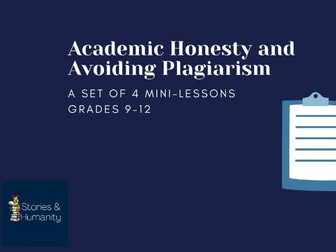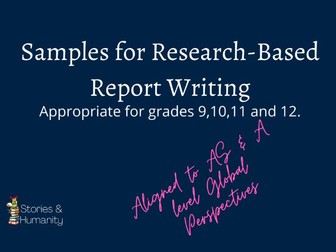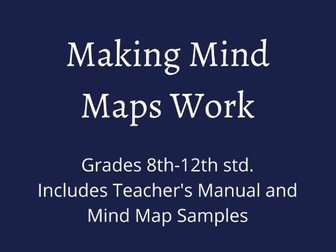
Academic Honesty and Avoiding Plagiarism
Academic Honesty and Avoiding Plagiarism is a set of 4 mini-lessons to take students’ understanding of plagiarism to the next level. The lesson plans are meant for students between grades 9 through 12, and for those who are somewhat familiar with the concept of plagiarism. The bundle will help you indulge in a conversation about academic honesty and how avoiding plagiarism is just one part of joining the academic community. The bundle contains the following:
a. A pre-quiz, including an article, an assessment and the answer key.
b. A teacher’s manual that will give you an overview of the lessons and the reasoning behind the same.
c. A presentation with all four lessons.
d. The handouts required to complete all the 4 lesson.
e. Additional resource include “common errors-plagiarism” flashcards.


